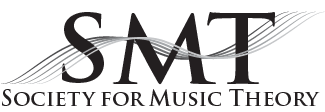Hello!
If you would like to participate in discussions, please sign in or register.
Categories
In this Discussion
- Amy Bauer August 2020
- Jason Yust August 2020
- Matthew Arndt August 2020
- Nicolas Meeùs September 2020
- Rich Pellegrin August 2020
- Richard Cohn September 2020
Most Popular This Week
Advice/resources for an Indigenous Theories or World Music Theories course
I'm creating a course for Boston University that would cover selection of theories indigenous to a diverse range of musical traditions. This would be a one-semester course both graduate and undergraduate, for music students but possibly also non-music students (with prereqs if necessary) at the undergraduate level. I'm curious if anyone has experiences with a course of this nature or resources they could point me to (and anyone else considering creating a course like this, which I hope others are!)
The idea is to cover a number of very different traditions and teach the theory that comes out of the tradition itself, in the form of written or oral transmission from practitioners. This does not preclude, however, working with secondary sources; given the constraints of covering a large number of traditions in a short period of time, I expect to mostly be working with secondary sources. My current working plan is to cover (1) Hindustani modal and rhythmic theory (or possibly Carnatic), (2) Balinese (or Javanese) theory of intonation and orchestration, (3) Persian (or possibly Arab or Turkish) modal theory, (4) Jazz harmony, and (5) Rhythmic theory from Latin American traditions.
Most of the work on these topics has been done by ethnomusicologists rather than theorists, but, as an editorial aside, I think theory as a discipline has a lot to offer and also to gain from being at the table in these areas, in pedagogy as well as research.
--Jason Yust
SMT Discuss Manager: smtdiscuss@societymusictheory.org

Comments
Hi Jason,
I've been teaching a course like this off and on for two decades. In the '90s I found the theoretical aspects of the Titon Wrold Music texts useful in designing such a course. There are many more sources now, and the issue is narrowing them down when confronted by a variegated tradition—say Karnatak or Hindusthani Classical music—in which sources may differ, as well as scaling down academic studies for an undergraduate audience. I'd be happy to share bibliography and resources from the most recent course I taught privately, along with my rationale for why I chose the particular sources that I did. I hope that evenutally the HC commons site of the Analysis of World Music Interest Group will post pedagogical materials.( I have been unable to make their meetings the last few conferences, but they discussed this recently, and there may be materials posted somewhere.)The forums of the AAWM journal may be another resource.
I should also point out that the SMT Committee on Race and Ethnicity has put up some resources recently:
http://diversity.societymusictheory.org/pedagogy/
Most of these are directed at teachers and administrators rather than students, and as such I recommend reading them, but would not necessarily include them on a syllabus.
--Jason Yust
There is some indigenous theory on Georgian music, especially Georgian chant, which has a canonical aspect. I can provide a few pointers upon request.
Jason - awesome idea! For jazz theory, The Jazz Theory Book by Mark Levine is widely used and has been around since 1993. It is written in an informal style. I also recommend Dariusz Terefenko's Jazz Study: From Basic to Advanced Study, which is accessible but written more in the style of a traditional theory textbook. I would be interested to see the syllabus for your course once it is designed. Perhaps you could share it on this site if it's permissible to do so. Take care and good luck with it.
I've always thought that this was an amazing article that could be used in such a course.
Zemp, Hugo, and Vida Malkus. "Aspects of'Are'are musical theory." Ethnomusicology 23.1 (1979): 5-48.
This is also probably worth looking at:
Feld, Steven. "'Flow like a waterfall': The metaphors of Kaluli musical theory." Yearbook for traditional music 13 (1981): 22-47.
I note that Jason Yust envisages a course about "Persian (or possibly Arab or Turkish) modal theory". Let me remind you that Harold Powers wrote, about 30 years ago, that "our 20th-century notion of something called "modality" as a widely applicable cross-cultural category is an invention of European scholarship" (H. Powers, "Modality as a European Cultural Construct", Secondo Convegno Europeo di Analisi Musicale, Trento, 1992, pp. 207-208).
I may not fully agree with Powers' opinion, but I reckon that it raises major questions about the relation between "indigenous" and Western theories. My feeling is that theorizing about music has been, since Antiquity, mainly a Western concern. About "Arabic" modality at least, I know that what is taught today in conservatoires in the Maghreb and the Middle East derives from ideas of the Cairo Congress of 1932 – mainly a European Congress.
This becomes a problematic question today (not only for Arabic theory, for Western vs non-Western theory at large), but I do believe that we should consider it from a true scholarly point of view. It may not be easy, but it is worth it.